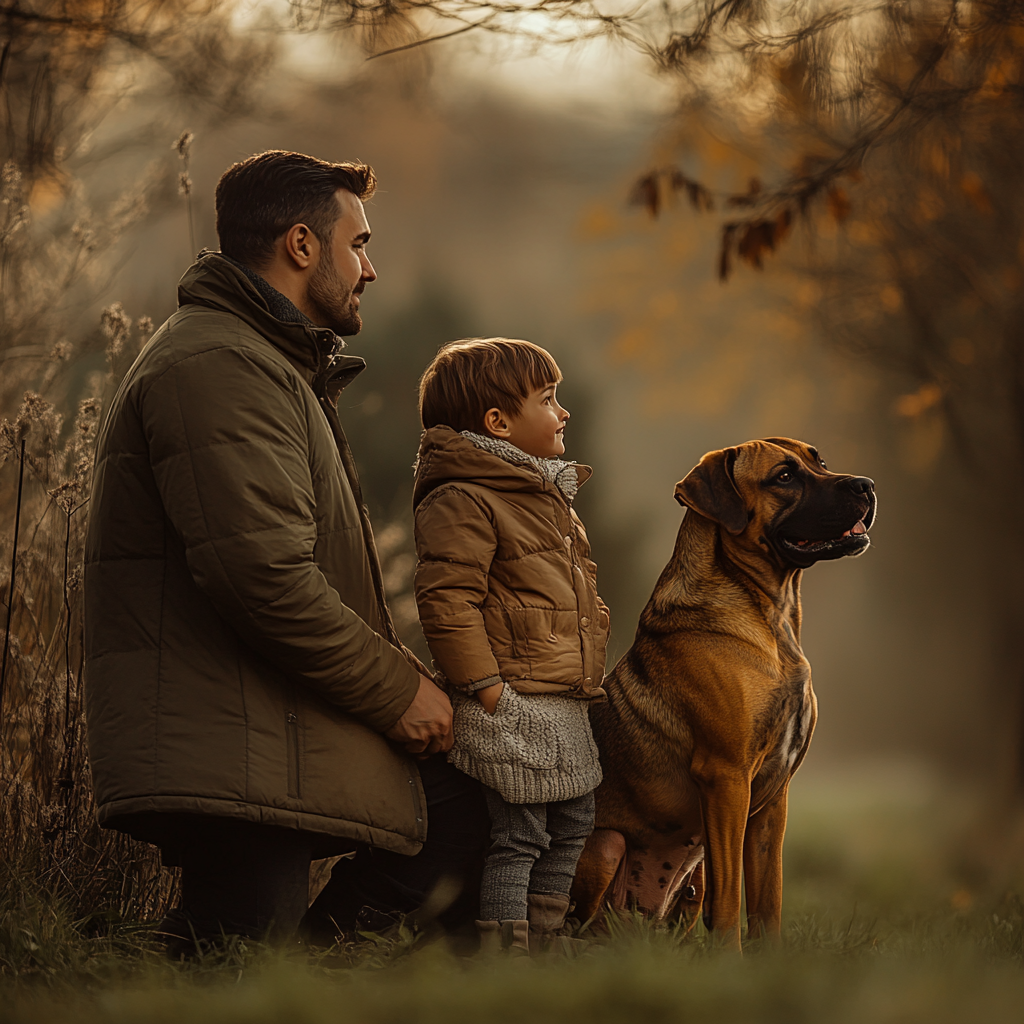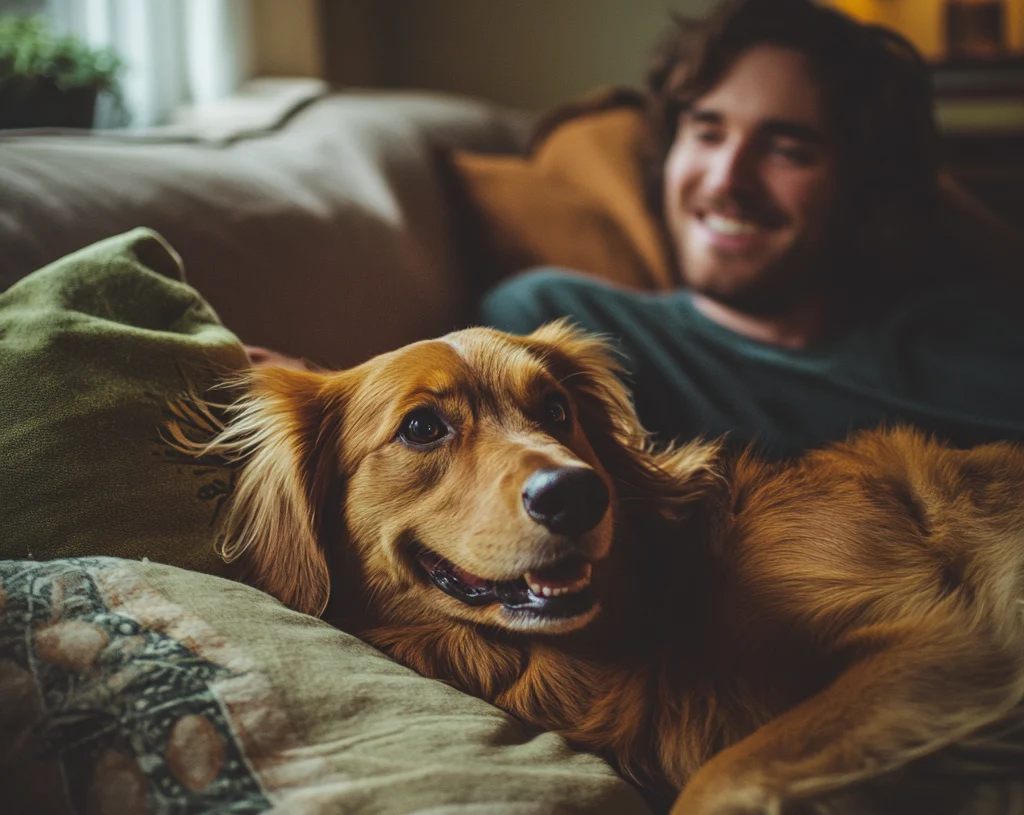Dogs are known for their unwavering loyalty. Learn why dogs are so loyal from a trainer and behavior expert’s perspective. Discover the psychology behind this powerful bond and how it strengthens over time.
Why Are Dogs So Loyal? A Trainer and Behavior Expert Shares Some Insight
Dogs have long been regarded as man’s best friend, and their loyalty is often cited as one of their most remarkable qualities. But why are dogs so loyal? What is it about this relationship that has led to the unique bond between humans and canines? In this article, a trainer and behavior expert will break down the psychology behind a dog’s unwavering loyalty, explaining why they are so devoted to their owners, what fuels their attachment, and how to build an even stronger bond with your furry companion.

Table of Contents
- The Evolution of Dog Loyalty
- Canine Pack Mentality and Social Structures
- How Dogs Form Attachment to Their Owners
- The Role of Oxytocin in Dog Loyalty
- What Makes Dogs Trust Humans So Deeply?
- How Can You Strengthen Your Dog’s Loyalty?
- Common Myths About Dog Loyalty
- The Role of Consistency and Routine in Building Loyalty
- What Is a Dog’s Emotional Capacity?
- The Science Behind Loyalty in Dogs: Expert Insights
- Conclusion: Understanding Your Dog’s Loyalty
The Evolution of Dog Loyalty
When we ask, “Why are dogs so loyal?”, it’s essential to first look back in time. Dogs are descendants of wolves, and much of their behavior can be traced back to their wild ancestors. In the wild, wolves relied on a pack structure, which emphasized loyalty, cooperation, and strong familial bonds for survival. Over thousands of years of domestication, dogs have evolved to form deep, emotional bonds with humans. Dogs that exhibited loyalty to humans, whether for protection, food, or companionship, had a higher chance of survival, thus passing this trait down through generations. This evolutionary advantage has made loyalty an intrinsic quality in dogs today.
Canine Pack Mentality and Social Structures
The concept of loyalty in dogs is largely influenced by their pack mentality. Dogs, much like wolves, are social animals that thrive in structured environments with clear hierarchies. The bond they form with their human family is akin to the bond a wolf would form with its pack. This pack mentality drives dogs to protect their family, adhere to routines, and stay closely attached to those they view as the leaders. The loyalty of dogs can be attributed to this ingrained social structure, where a dog sees its owner as the pack leader and itself as a loyal follower.
How Dogs Form Attachment to Their Owners
Understanding why dogs are so loyal requires an examination of how they form attachments. Dogs rely on human companionship to thrive emotionally and physically. From the moment a dog enters your home, they begin to assess their environment and the people within it. Through positive interactions, dogs form deep emotional attachments to their owners, and this bond grows stronger over time. The consistency of care, affection, and attention fosters loyalty, as dogs come to rely on their humans for comfort, security, and even survival.
The Role of Oxytocin in Dog Loyalty
Oxytocin is often called the “bonding hormone” or the “love hormone,” and it plays a crucial role in why dogs are so loyal. This hormone is released in both humans and dogs during positive interactions, such as petting, playing, or making eye contact. Oxytocin strengthens the emotional connection between dogs and humans, promoting feelings of affection, trust, and loyalty. Studies have shown that when you interact with your dog, both you and your dog experience a surge in oxytocin levels, further solidifying the bond between you and your loyal companion.
What Makes Dogs Trust Humans So Deeply?
One of the key components of dog loyalty is trust. Trust is built over time, through positive experiences and mutual understanding. Dogs are highly attuned to human emotions, and they can sense their owner’s mood. When an owner provides food, shelter, and affection, dogs learn to trust that their needs will be met. This deep trust forms the foundation of loyalty, as the dog feels safe and secure in its relationship with its human. When trust is established, dogs become fiercely protective and loyal to the one they trust most.
How Can You Strengthen Your Dog’s Loyalty?
If you’re wondering how to build an even stronger bond with your dog, the answer lies in consistency, affection, and understanding. To foster loyalty, it’s important to provide clear, consistent leadership. Dogs respond well to routines and structure. Regular exercise, playtime, and training sessions not only strengthen the emotional bond but also reinforce trust and loyalty. Positive reinforcement is key—praise, treats, and affection during training sessions will ensure that your dog feels valued and loved.
Common Myths About Dog Loyalty
When discussing why dogs are so loyal, it’s essential to address common myths that can skew our understanding of dog behavior. One of the most common misconceptions is that dogs are loyal only to one person. In reality, dogs can form strong bonds with multiple people within a household, although they may have a primary attachment to one person. Another myth is that dogs will only remain loyal as long as they receive food. While food is an important part of the equation, loyalty is built on emotional bonds, trust, and affection, not just survival needs.
The Role of Consistency and Routine in Building Loyalty
Routine and consistency are crucial factors in maintaining and strengthening loyalty in dogs. Dogs thrive on predictability. When they know what to expect from their human companions—whether it’s the timing of meals, walks, or play—they feel more secure. Consistency in training, boundaries, and discipline also helps dogs feel safe and loved, contributing to a stronger sense of loyalty. If you can offer a consistent environment, your dog will feel more comfortable, and their loyalty to you will only deepen.
What Is a Dog’s Emotional Capacity?
Dogs are often thought to have limited emotional capacities compared to humans, but research shows that this is far from the case. Dogs are highly emotional animals with the ability to experience a wide range of feelings, from joy and excitement to anxiety and fear. These emotional experiences play a significant role in why dogs are so loyal. When a dog forms a bond with a human, it is not simply a reaction to food or survival—it’s a deeply emotional connection based on love, trust, and shared experiences.
The Science Behind Loyalty in Dogs: Expert Insights
From a scientific perspective, the bond between dogs and humans is truly remarkable. Experts agree that the relationship is based on a combination of behavioral instincts, emotional intelligence, and neurobiological processes. Canine behavior specialists suggest that dogs have an innate ability to read human emotions and respond accordingly. Through positive interactions and experiences, dogs learn to form a loyalty bond, driven by hormones like oxytocin and dopamine, which create feelings of happiness and attachment.
Conclusion: Understanding Your Dog’s Loyalty
So, why are dogs so loyal? It’s a question that delves into the complex world of canine psychology and behavior. Dogs’ loyalty is not only a result of domestication and evolutionary survival but also a product of their deep emotional connections with humans. Through positive interactions, trust, and consistency, we can strengthen the bond with our dogs and deepen their loyalty. By understanding the psychology behind this remarkable trait, you can create a more fulfilling and lasting relationship with your loyal companion.
For more pets-related articles, click here: https://ledstk.com/category/pets/
For recipe lovers, see here: https://sotastyrecipe.com
